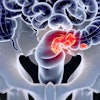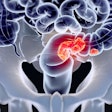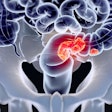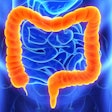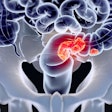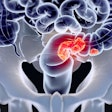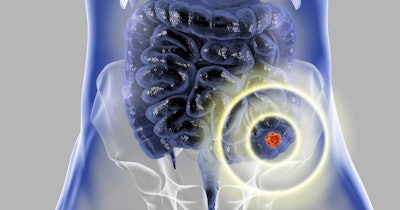
Washington University School of Medicine researchers have identified four important signs and symptoms that signal an elevated risk of early-onset colorectal cancer. The study, published Thursday in the Journal of the National Cancer Institute, indicates that recognizing these red flags may be key to earlier detection and diagnosis, and improved survival among people under the age of 50.
The number of younger adults with colorectal cancer has nearly doubled in recent years. Individuals born in 1990 have double the risk of colon cancer and four times the risk of rectal cancer compared with those born in 1950. The researchers, who are also investigating risk factors associated with early-onset colorectal cancer, report that obesity, prolonged sitting, metabolic syndrome, diabetes, and sugar-sweetened beverages may all contribute to the rising incidence of early-onset colorectal cancer.
In 2021, the U.S. Preventive Services Task Force lowered the recommended age for colorectal cancer screening from 50 to 45. According to the American Cancer Society, although death rates from colorectal cancer have been dropping for several decades in older adults due to regular colonoscopies and improved treatment, more younger adults are being diagnosed with the disease at advanced stages, with many dying from it.
The researchers believe urgency is warranted to facilitate early detection and diagnosis. They analyzed cases and matched controls from de-identified health insurance data on about 5,000 patients with early-onset colorectal cancer. They concluded that, between three months and two years prior to diagnosis, abdominal pain, rectal bleeding, diarrhea, and iron deficiency anemia each indicate an increased risk in people under age 50. Having one of the symptoms almost doubled colorectal cancer risk; having two symptoms increased that risk by more than 3.5 times; and having three or more boosted the risk by more than 6.5 times. Two symptoms in particular -- rectal bleeding and iron deficiency anemia -- indicated the need for timely endoscopy and follow-up.
The researchers note that due to frequent diagnostic delays with early-onset colorectal cancer, it is all too often detected in an emergency room. Many younger patients had more advanced disease at the time of diagnosis than were normally seen in regularly screened older people. Although the usual amount of time between first seeing a doctor for one or more red-flag signs and getting a diagnosis is about three months, they found that some young adults had symptoms for up to two years prior to diagnoses.
“Colorectal cancer is not simply a disease affecting older people," Yin Cao, corresponding author and associate professor of surgery in the Public Health Sciences Division at Washington University, said in a statement. “Because people under 50 are considered low risk and don’t receive routine colorectal cancer screening, we want younger adults to be aware of and act on these potentially very telling signs and symptoms. By doing so, we can diagnose the disease earlier, which in turn can reduce the need for more aggressive treatment and improve patients’ quality of life and survival rates.”



